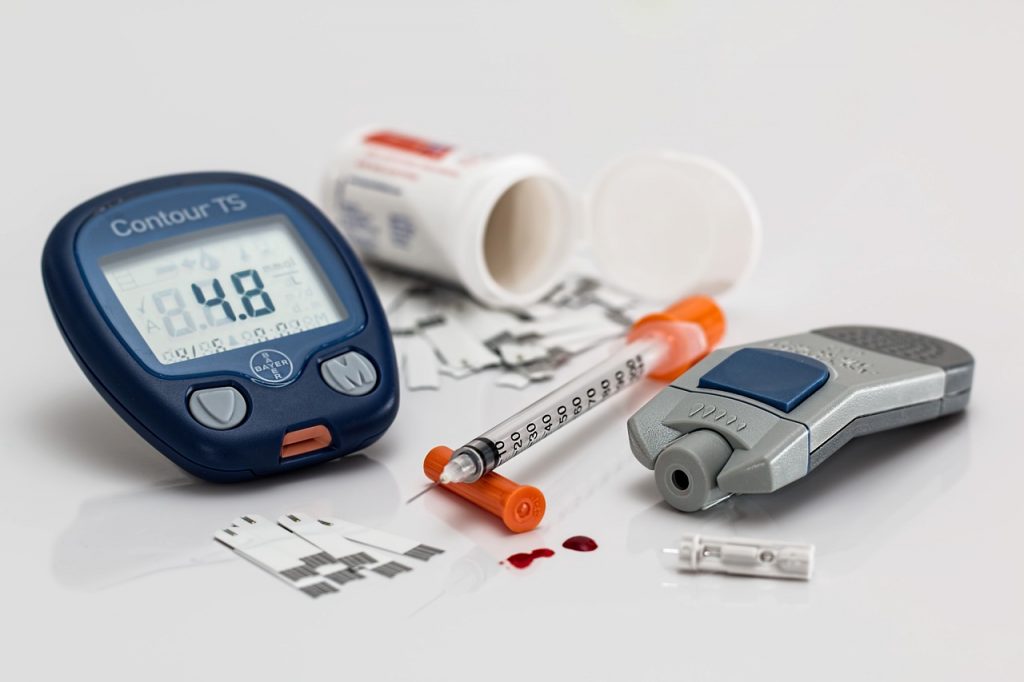Diabetes, a chronic condition that affects millions of people around the world, requires consistent management and a comprehensive approach to maintain healthy blood sugar levels and prevent complications. Fortunately, technological advances have brought with them innovative tools that become allies for patients with diabetes, helping them improve their lifestyle and control their disease more effectively.
1. Continuous glucose monitoring (CGM):
CGM has revolutionized diabetes management by providing real-time information on blood glucose levels, allowing patients to make informed decisions about their diet, physical activity and medication. These devices consist of a small sensor inserted under the skin that records glucose levels every few minutes, sending the data to a portable transmitter or receiver.
2. Mobile applications for diabetes management:
Mobile apps have become valuable tools for diabetes management, offering a wide range of features including:
- Recording blood glucose, insulin, diet and physical activity levels.
- Charts and data analysis to identify patterns and trends.
- Reminders to take medications and perform glucose checks.
- Educational resources on diabetes and disease management.
- Connecting with online communities for support and motivation.
3. Artificial Intelligence (AI) for data analysis:
AI is transforming diabetes management by analyzing large data sets of blood glucose, diet, physical activity and other health-related factors. These analyzes can identify patterns and trends that might be difficult to detect manually, allowing patients and their healthcare professionals to make more informed and personalized decisions.
E4 Diabetes Solutions: An integral ally for diabetes management
E4 Diabetes Solutions stands out as an integral ally for the management of diabetes, offering a wide range of programs and technological tools that adapt to the individual needs of each patient.
In addition to cutting-edge technology such as continuous glucose monitoring and mobile apps, E4 Diabetes Solutions relies on artificial intelligence (AI) and ongoing training to empower its subscribers to take control of their health.
Its comprehensive program, E4 Alive, combines technology, education and personalized support to help patients:
- Better understand your diabetes: E4 Alive provides resources and tools to understand the different aspects of diabetes, including physiology, nutrition, physical activity and medication.
- Set Realistic Goals: E4 Alive works with each patient to set blood glucose control and lifestyle goals that are achievable and motivating.
- Develop Healthy Habits: E4 Alive offers tools and strategies to incorporate positive changes in diet, physical activity, and stress management.
- Monitor your progress: E4 Alive allows patients to track their progress and adjust their plans as needed, with the support of healthcare professionals.
With its comprehensive and personalized approach, E4 Diabetes Solutions becomes an invaluable ally for patients with diabetes, helping them improve their lifestyle, control their disease and achieve a higher quality of life.

Type 2 Diabetes: Is It Really Reversible?
A recent National Geographic article [link] explores how type 2 diabetes could be reversible with the right approaches. This condition, which affects millions of people worldwide, has long been considered a chronic and progressive disease. However, recent research challenges this perception and suggests that with lifestyle changes and the right approach, remission is possible. The

How Do GLP-1 Drugs Compare? A Breakdown of Ozempic, Mounjaro, and Trulicity
GLP-1 receptor agonists have revolutionized diabetes management, with drugs like Ozempic, Mounjaro, and Trulicity leading the market. But how do these medications compare in terms of effectiveness, side effects, and patient outcomes? Let’s explore their differences and what they mean for diabetes patients. Understanding GLP-1 Medications GLP-1 receptor agonists mimic a natural hormone that helps

Why Has Medicare Spending on Diabetes Medications Skyrocketed in 5 Years?
In the past five years, Medicare spending on diabetes medications has increased nearly fivefold, reaching $35.8 billion in 2023. This surge has been primarily driven by the growing use of GLP-1 drugs such as Ozempic, Mounjaro, and Trulicity. But what is behind this cost escalation, and how does it affect patients and the U.S. healthcare

The Gut Microbiota and Blood Sugar Control: A Hidden Connection
The human gut is home to trillions of bacteria that play a crucial role in digestion, immune function, and even metabolism. Recent research has revealed a fascinating link between the gut microbiota and blood sugar regulation, shedding light on how the balance of microbes in our intestines can influence diabetes risk and overall metabolic health.

The Dawn Phenomenon: Why Blood Sugar Rises While You Sleep
For many people with diabetes, waking up with high blood sugar levels can be frustrating—especially if they didn’t eat anything overnight. This early-morning spike in blood glucose is known as the Dawn Phenomenon, and it happens due to natural hormonal changes in the body. But why does it occur, and how can it be managed?

The Influence of Red Light on Blood: Can It Improve Diabetes?
Type 2 diabetes is a metabolic disease characterized by insulin resistance and elevated blood glucose levels. In the search for complementary alternatives to improve glycemic control, red light therapy has gained attention due to its potential to enhance circulation, reduce inflammation, and optimize cellular function. But what does science say about it? ✨ What is

